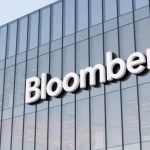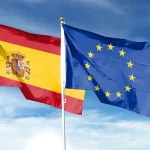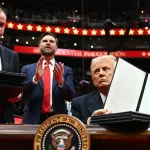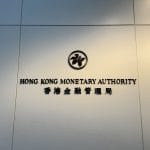Vietnam Positions Itself as Emerging Green Transition Hub in Asia

• Vietnam restates its net-zero 2050 commitment and prepares new legal frameworks to attract global green capital and advanced technologies.
• Experts at the Autumn Economic Forum 2025 highlight Vietnam’s potential to become a regional centre for green logistics, low-carbon supply chains and renewable-energy deployment.
• Revised national energy policies accelerate wind and solar expansion, while the government moves to resolve pricing, grid congestion, land issues and energy-storage gaps.
A New Phase in Vietnam’s Green Transition
Vietnam used this year’s Autumn Economic Forum to draw a clear line under its ambitions for the next decade: rapid green transition, deep digitalisation and stronger integration into global low-carbon supply chains. The message came from both government leaders and international experts, who described the country as entering a decisive stage of economic transformation shaped by climate commitments and the race for green investment.
Prime Minister Pham Minh Chinh told delegates that “Vietnam’s strong commitment to achieving net-zero emissions by 2050” is matched by readiness to “open the market and strengthen the legal framework to attract green capital and advanced technologies.” He framed Vietnam’s strategy around three principles: people and businesses at the centre of development; a foreign policy grounded in independence, self-reliance and multilateral cooperation; and a clear path for green and digital transformation across the economy.

Economic Opportunity Driving Momentum
At the CEO 500 Tea Connect session, Alec Saltikoff, Chief Strategy Officer and CEO of DeepGreenX, argued that the transition is now an economic competition. “The green transition is not only an environmental obligation but also a historic economic opportunity,” he said. “Countries that act swiftly and businesses that embrace bold innovation will take the lead.”

Saltikoff described Vietnam as one of the most dynamic emerging players, crediting its “robust economic performance and firm government commitment to net-zero emissions.” He pointed to the restructuring now underway across manufacturing, logistics, finance, smart urban development and renewables as evidence of momentum toward a low-carbon model.
Global climate-tech firms, he added, are actively seeking partnerships with Vietnamese companies “known for their big visions, rapid implementation and innovative capacity.” With the right combination of international technology, green finance and domestic creativity, Vietnam could become “Asia’s leading hub for green technology and low-carbon logistics.”
Experts at the forum reinforced the need for shared data, common standards and interoperable technologies to ensure sustainable ecosystems that deliver economic and societal benefits over time.
Logistics and Competitiveness in a Low-Carbon Economy
Thomas Sim, President of the International Federation of Freight Forwarders Associations, described digitalisation and green transition as the defining factors separating the world’s most competitive economies from the rest. Countries advancing both fronts, he said, “not only strengthen resilience but also gain new advantages in global trade.”
Sim highlighted Vietnam’s ambition to anchor a regional green-logistics network with ASEAN partners including Indonesia, Singapore, Thailand, Malaysia and the Philippines. But he also stressed that “green transition only brings real value when it delivers substantive changes in supply chain operations and connectivity,” anchored in long-term, coherent commitments. “The future will favour economies that are faster, greener and smarter,” he said, “and Vietnam is well positioned to be among the pioneers.”
RELATED ARTICLE: Vietnam Launches Emissions Trading Scheme Covering Half of National CO2 Output
Energy Policy Moves to the Fore
The energy transition featured heavily in closed-door dialogues between ministries, industry and investors. Deputy Minister of Industry and Trade Phan Thi Thang described the next few years as “a crucial phase” as Vietnam adjusts to global pressures for green production and consumption.
The revised Power Development Plan No. 8 accelerates deployment of wind and solar, but Thang acknowledged the structural challenges that come with scaling intermittent resources. These include grid stability, storage, land access and maintaining affordable electricity prices. The government has instructed the ministry to set out updated policies and legal frameworks to enable sustained renewable-energy build-out.
Thang said the amended Electricity Law is beginning to resolve long-standing bottlenecks and provides a foundation for energy security, renewable expansion and the net-zero target. The ministry is now prioritising renewable-energy pricing mechanisms, grid investment, energy-storage infrastructure and development of supporting industries. Domestic firms are being encouraged to join renewable-energy supply chains and help build dedicated green-industry zones in high-potential regions.
Local Leadership Steps Up
At the local level, Ho Chi Minh City outlined its contribution. Chairman Nguyen Van Duoc described three priorities: a people- and business-centred innovation ecosystem; a coordinated push for green transition and digital transformation across all urban and socio-economic sectors; and expanded international cooperation to attract global talent.
Implications for Global Investors
For international investors tracking Asia’s energy transition, the forum framed Vietnam as a country moving from policy intent to operational action. With new legal reforms underway, a clearer pricing agenda emerging, and visible demand for green infrastructure and digital systems, the country is positioning itself as a competitive destination for capital seeking long-term climate-aligned growth.
Vietnam’s challenge now lies in execution: turning its net-zero pledge, logistics ambition and renewable-energy blueprint into systems that meet international standards and attract sustained cross-border investment. But the direction of travel is no longer in question.
Follow ESG News on LinkedIn












